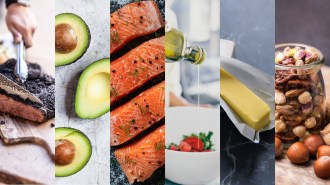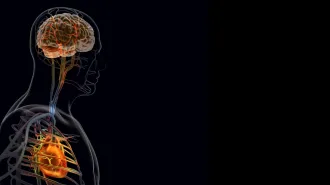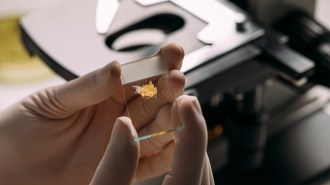Power of sugar may come from the mind
Only people who believe exertion zaps willpower get a boost from glucose
- More than 2 years ago
People who need sugary snacks to stay sharp throughout the day could be prisoners of their own beliefs. The brain works just fine without regular shots of sugar in people who believe their willpower is unlimited, a new study shows.
“There’s a dominant theory in psychology that willpower is limited, and whenever you exert yourself to do a hard task or to resist a temptation, you deplete this limited resource,” says psychologist Carol Dweck from Stanford University.
Previous studies have shown that mental exertion diminishes blood glucose levels and that a person’s willpower can be rejuvenated by ingesting a sugary drink. But Dweck’s earlier work led her to suspect that people’s attitudes about willpower may be responsible for that effect.
In the new study, published online August 19 in the Proceedings of the National Academy of Sciences, Dweck, along with colleagues at the University of Zurich in Switzerland, focused on how attitudes about willpower may shape a person’s sugar dependence in the face of a challenge. The scientists also tested whether altering these beliefs might liberate a person from such a calorie-rich requirement.
In the first of three experiments, the researchers asked students about their attitudes on willpower, then gave them lemonade sweetened with either sugar or a sugar substitute. Ten minutes after downing the sweet beverage, the students took tests of self-control and mental acuity.
The students who subscribed to a self-generating belief about unlimited willpower scored equally well whether their drinks contained sugar or not. But the students who felt willpower was limited needed sugar to perform as well as the other group did.
In a second experiment, the researchers tweaked students’ pre-existing views by suggesting that willpower was either depleted or renewed in the face of a mental challenge. The students who were led to believe willpower was in short supply needed sugar to perform well on the tests; the others did not.
Finally, the researchers told the students that their drinks contained sugar when they did not (and vice versa). The students with the limited willpower view still required real sugar in their drinks to perform well on the task.
Dweck thinks that sugar sends a signal of renewed energy to the brain, a cue that people with a limited view of willpower are keen to pick up on. “But when you think willpower is abundant and self-energizing, you’re not paying attention to that,” Dweck says.
Though the brain ultimately needs glucose to function properly, Dweck says, “the problem is that so many people believe they need to replenish after quite a small amount of exertion.”
A person on a healthy diet has an ample glucose supply for mental tasks, says Andrew Lane, a sports psychologist at the University of Wolverhampton in England. “If we needed shots of glucose to focus, we would’ve been eaten by whatever was in front of us and died out long ago,” he says.
While the study presents intriguing results, “we all have much more to learn about the mind-body interface,” says psychologist Roy Baumeister of Florida State University, who led the previous studies establishing a link between glucose and willpower. “I don’t think it’s the last word.”







